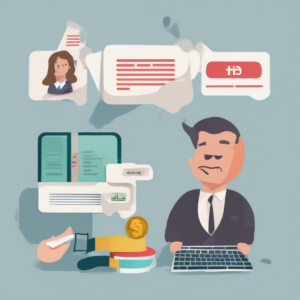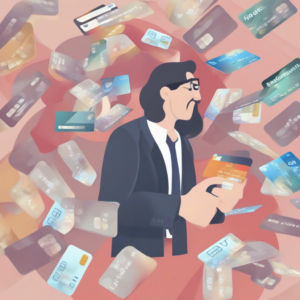Conquer Your Debt: A Comprehensive Guide to Financial Freedom
Debt can feel overwhelming, a heavy weight dragging you down and preventing you from achieving your financial goals. But escaping its grip is entirely possible with a well-structured plan, discipline, and a commitment to change. This guide provides a comprehensive roadmap to help you navigate the journey out of debt and toward a brighter financial future.
1. Assessing Your Debt Situation
Before you can conquer your debt, you need to understand it. This involves a thorough assessment of your current financial standing.
- List all your debts: Include credit cards, loans (personal, student, auto, mortgage), medical bills, and any other outstanding payments. Note the balance, interest rate, minimum payment, and due date for each.
- Calculate your total debt: Add up all your outstanding balances to get a clear picture of your overall debt load.
- Determine your monthly income: List all sources of income, including salary, bonuses, and any other regular payments.
- Track your monthly expenses: Analyze your spending habits to identify areas where you can cut back. Use budgeting apps or spreadsheets to monitor your expenses meticulously. Categorize your spending (housing, food, transportation, entertainment, etc.) to pinpoint areas of overspending.
- Calculate your debt-to-income ratio (DTI): Divide your total monthly debt payments by your gross monthly income. A high DTI indicates a greater financial burden.
2. Creating a Realistic Budget
A budget is the cornerstone of any successful debt repayment strategy. It helps you visualize your income and expenses, allowing you to make informed decisions about your spending and allocate funds effectively towards debt reduction.
- 50/30/20 Rule: A popular budgeting method suggests allocating 50% of your income to needs (housing, food, utilities), 30% to wants (entertainment, dining out), and 20% to savings and debt repayment.
- Zero-Based Budgeting: This method involves allocating every dollar of your income to a specific expense category, ensuring that your income and expenses balance out to zero. This promotes mindful spending and prevents overspending.
- Envelope System: Allocate cash for specific expense categories and place it in labeled envelopes. Once the cash is gone, you’re done spending in that category for the month.
- Track your progress: Regularly review your budget and adjust as needed. This ensures your budget remains relevant and effective.
3. Choosing a Debt Repayment Strategy
Several methods can help you systematically pay down your debt. The best strategy depends on your individual circumstances and debt profile.
- Debt Snowball Method: This method involves paying off your smallest debt first, regardless of its interest rate. The psychological boost of quickly eliminating a debt can motivate you to continue the process. Once the smallest debt is paid off, you roll the payment amount into the next smallest debt, creating a snowball effect.
- Debt Avalanche Method: This method focuses on paying off the debt with the highest interest rate first, regardless of its size. While it might take longer to see initial results, it can save you significant money on interest in the long run.
- Balance Transfer: Transferring high-interest debt to a credit card with a lower interest rate (often a 0% introductory APR) can significantly reduce interest payments, allowing you to pay down the principal faster. Be mindful of balance transfer fees and the duration of the introductory period.
- Debt Consolidation: Combining multiple debts into a single loan with a lower interest rate can simplify repayments and potentially reduce your monthly payments. However, ensure the terms of the consolidation loan are favorable.
4. Increasing Your Income
While reducing expenses is crucial, increasing your income can significantly accelerate your debt repayment journey. Explore various avenues to boost your earnings.
- Negotiate a raise at your current job: Research industry salaries and prepare a compelling case highlighting your contributions and value to the company.
- Seek a higher-paying job: Update your resume, network, and actively search for opportunities that offer better compensation and benefits.
- Freelancing or side hustle: Explore opportunities to monetize your skills or passions through freelance work, part-time jobs, or starting a small business.
- Rent out assets: If you own a spare room, car, or other assets, consider renting them out to generate extra income.
- Sell unused items: Declutter your home and sell unwanted items online or at consignment shops to generate quick cash.
5. Seeking Professional Help
If you’re struggling to manage your debt, don’t hesitate to seek professional guidance. Financial advisors and credit counselors can provide personalized advice and support.
- Credit counseling: Non-profit credit counseling agencies offer debt management plans (DMPs) that can consolidate your debts and negotiate lower interest rates with creditors.
- Debt settlement: This involves negotiating with creditors to settle your debts for less than the full amount owed. It can negatively impact your credit score, so it should be considered as a last resort.
- Bankruptcy: Bankruptcy is a legal process that can discharge certain debts, but it carries significant long-term consequences for your credit score. It should be considered only as a last resort after exploring all other options.
6. Building Good Financial Habits
Once you’ve conquered your debt, it’s crucial to build healthy financial habits to prevent future debt accumulation.
- Automate savings: Set up automatic transfers to your savings and investment accounts to ensure consistent contributions.
- Emergency fund: Build an emergency fund to cover unexpected expenses, preventing you from resorting to debt in times of crisis.
- Mindful spending: Track your spending and consciously make purchasing decisions, prioritizing needs over wants.
- Regularly review your credit report: Monitor your credit score and report any inaccuracies to the credit bureaus.
- Financial literacy: Continuously educate yourself on personal finance topics to improve your financial decision-making skills.
7. Avoiding Future Debt
Preventing future debt requires proactive measures and a commitment to responsible financial management.
- Live within your means: Avoid overspending and only borrow money for essential purchases that you can comfortably afford to repay.
- Use credit cards responsibly: Pay your credit card balances in full each month to avoid interest charges. Only use credit cards for purchases you can afford and track your spending diligently.
- Plan for large purchases: Save up for significant purchases instead of relying on debt. This allows you to make informed decisions without the pressure of high-interest payments.
- Build an emergency fund: An emergency fund provides a financial safety net, reducing the need to borrow money during unexpected events.
- Regularly review your financial goals: Set realistic financial goals and adjust your plans as your circumstances change.





